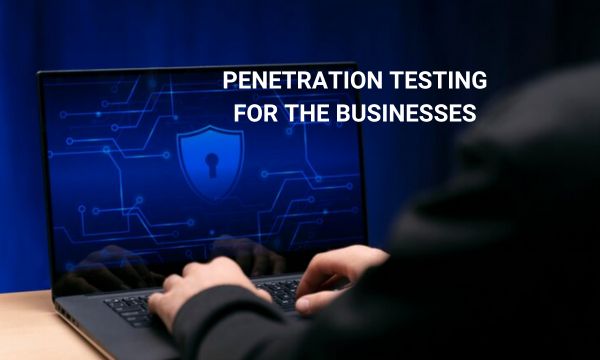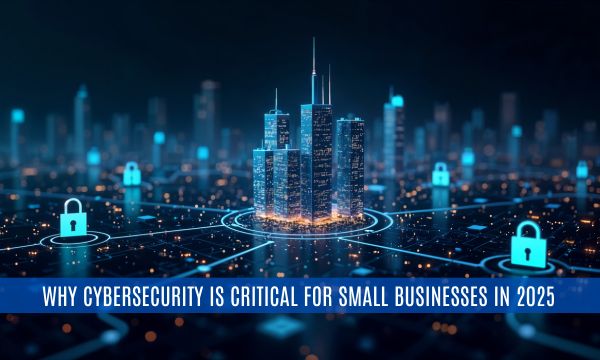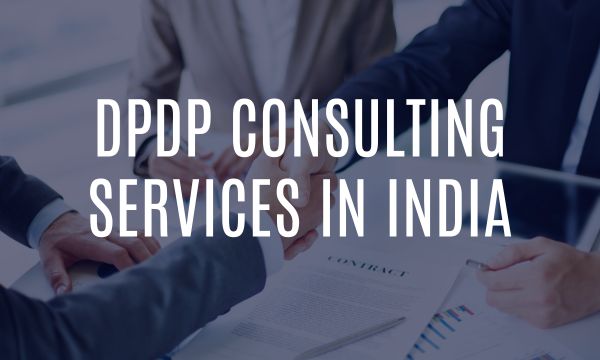
In today’s increasingly digital world, cyberattacks have become a daily reality. From high-profile data breaches to sophisticated ransomware operations, no industry is immune. This evolving threat landscape demands proactive measures to secure sensitive data, operational systems, and customer trust. That’s where penetration testing (pentesting) comes into play. Whether in healthcare, manufacturing, logistics, or even a startup, understanding what penetration testing is—and why it’s critical for your business—can make all the difference.
What is Penetration Testing?
Penetration testing, often called "ethical hacking," is a simulated cyberattack performed by security experts to identify and exploit vulnerabilities in an organisation’s digital infrastructure. The goal is to uncover weaknesses before malicious actors do, allowing businesses to fix them and improve their overall security posture.
Unlike traditional vulnerability assessments that merely identify potential risks, pentesting goes a step further. It actively tests your defences, revealing how an attacker could exploit weaknesses to gain access to sensitive information or disrupt business operations.
Key Benefits of Penetration Testing
* Proactive Threat Identification: Prevent security incidents by identifying vulnerabilities before they are exploited.
* Regulatory Compliance: Many industries, including healthcare and financial services, require penetration testing to meet regulatory standards such as HIPAA, GDPR, and ISO 27001.
* Cost Savings: The cost of a data breach can be astronomical. In 2023, the average cost of a data breach globally was $4.45 million, according to IBM's annual "Cost of a Data Breach" report. Penetration testing can help you avoid these financial pitfalls.
* Enhanced Customer Trust: Demonstrating a commitment to cybersecurity can increase customer confidence, especially in sectors where data privacy is a top concern.
Industry-Specific Risks and Benefits
Let’s take a closer look at how penetration testing plays a crucial role across different sectors.
1. Healthcare: Protecting Patient Data and Compliance
In healthcare, patient data is a prime target for cybercriminals due to its high value on the black market. According to the Ponemon Institute, a healthcare data breach costs organizations $10.93 million on average—significantly higher than breaches in other industries. With sensitive data governed by strict regulations like HIPAA (Health Insurance Portability and Accountability Act), healthcare organizations must ensure that their systems are secure.
* Risk Example: Outdated software in hospital management systems, unencrypted patient records, or vulnerable IoT medical devices.
* Pentesting Benefit: Identifying vulnerabilities in electronic health records (EHR) systems and testing the security of connected medical devices ensures compliance with regulatory requirements while safeguarding patient data.
2. Manufacturing: Securing Industrial Control Systems (ICS)
Manufacturing has become a growing target for cybercriminals due to the rise of Industry 4.0 and the increasing interconnectedness of systems. Industrial control systems (ICS) that manage production lines, robotics, and supply chain operations can be exposed to threats if not adequately protected.
* Risk Example: The 2020 Norsk Hydro cyberattack caused severe operational disruptions, costing the manufacturing giant over $60 million. The attack targeted their ICS and disrupted aluminium production worldwide.
* Pentesting Benefit: Penetration testing in manufacturing can identify vulnerabilities in control systems, ensuring that both production lines and intellectual property are secure from ransomware and sabotage attempts.
3. Logistics: Ensuring Supply Chain Continuity
In logistics, the seamless flow of goods is critical. The industry relies heavily on technology to manage supply chains, track inventory, and schedule shipments. With an expanding network of partners and third-party services, logistics companies are vulnerable to supply chain attacks and ransomware incidents that could halt operations.
* Risk Example: An attack that disrupts communication between distribution hubs could lead to delays, customer dissatisfaction, and financial losses.
* Pentesting Benefit: Identifying vulnerabilities in IT systems, such as transportation management systems (TMS), ensures that operations remain uninterrupted, reducing the risk of downtime or data breaches.
4. Startups: Building Security from the Ground Up
Startups, particularly those in SaaS and tech, often adopt a “move fast and break things” mentality. Unfortunately, this approach can leave security as an afterthought. With limited budgets, startups may not prioritize security early on, making them easy targets for attackers.
* Risk Example: A lack of encryption in early-stage applications or insecure APIs can expose user data, leading to a loss of credibility.
* Pentesting Benefit: Regular pentesting helps startups identify and fix security gaps early, ensuring that their platforms are secure as they scale. Moreover, this proactive approach can be a selling point for attracting investors and customers who value data privacy.
5. Government: Securing Critical Infrastructure
Government organizations manage a wealth of sensitive information, from citizen data to national defence systems. With an increase in nation-state cyberattacks, safeguarding critical infrastructure has become a top priority.
* Risk Example: In 2021, the Colonial Pipeline ransomware attack exposed the vulnerabilities of critical energy infrastructure, leading to fuel shortages across the East Coast of the U.S.
* Pentesting Benefit: Government agencies can use penetration testing to simulate attacks on critical systems and ensure that all security layers are effective in defending against both cybercriminals and nation-state actors.
Conclusion: Why Every Industry Needs Penetration Testing?
Whether you’re running a healthcare organization with sensitive patient records, a manufacturing firm relying on industrial control systems, or a startup working on the next big app, cybersecurity must be a priority. Penetration testing offers an essential way to safeguard your organization by identifying and fixing vulnerabilities before cybercriminals exploit them.
In an age where cyberattacks are becoming more frequent and sophisticated, a single security lapse could cost your business millions. Don’t wait until it’s too late—integrate regular penetration testing into your security strategy and protect your operations, data, and reputation.
Ready to secure your business with penetration testing? Contact us today for a free consultation and learn how we can help you identify and mitigate the cybersecurity risks specific to your industry.



